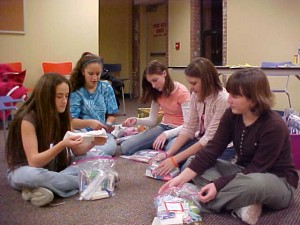Recognize Gender Differences in How Volunteers Work
Thursday, July 18th, 2013As much as we’d like to think there are no differences between the genders in the workplace—or in volunteer positions—the truth is that there are. Understanding the fundamental differences can help any organization run more smoothly, and with less tension and stress.
Some of the ways men and women view the workplace differently follow. Of course, these aren’t hard-and-fast rules, but general observations.
Men and women communicate differently: This will come as a surprise to practically no one. Men are more competitive and are more likely to interrupt one another. Women are more likely to weigh in after others have already expressed their opinions. Women also don’t raise their hands to speak as much, so they’ll often need to be asked their opinions. Both styles are valuable, with women viewing problems more broadly, and men being more narrow in their focus.
Women work more toward consensus: Women are more apt to exchange information, ask for consensus, and bounce ideas off of a larger group in order to create a broader agreement. Women prefer to gather feedback and are more likely to show concern that others are included in decision making. This interest in others can gain them more trust and create a more productive work environment. Men, on the other hand, want a quick decision, and more often come to them on their own.
Work-life balance: This is where misunderstanding can cause issues. Women are more accepting of the diverse needs of volunteers and workers, while men are more comfortable with doing things the way they’ve always been done. Traditional management styles and organizational cultures tend to favor the way men prefer to work. Women in positions of leadership are more likely to notice people’s needs.
It’s difficult for women and minorities to advance in places where an “old boys’ club” exists, but happily, that’s more the norm in corporate America than in non-profit America.








